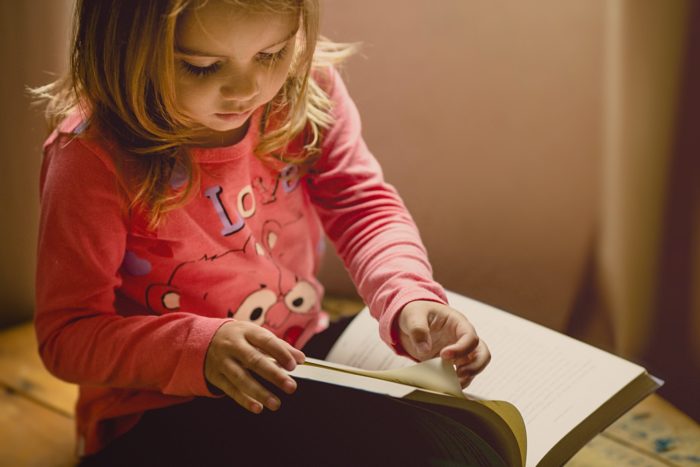Storytelling Reduces Stress and Pain in Children
There is a recent study about tales and storytelling revealing their healing abilities. Tales can have powerful healing effects, but the least they can do is provide relief from stress and pains, especially for bed-ridden children.
We know that reading books is important for children developmentally: they learn to read and grasp the information quickly, master the language. Reading before sleep is known to produce a strong calming effect. But reading and storytelling possess more useful characteristics than could be seen at first glance. They have a potential therapeutic impact on hospitalized children and those passing through a difficult phase.
The storytelling study
The researchers involved more than 80 kids aged from 2 to 7 in approximately the same condition of health. The findings revealed that listening to stories serves as an analgesic for inmates of an Infant Care Unit. Their salivary cortisol level comes down, oxytocin level comes up, and patients’ complaints of pain become rarer. What’s more, children who listened to stories periodically were more positive about their stay in the hospital.
This is the gist of the study that appeared in the Proceedings of the National Academy of Sciences, one of the US’s more prestigious scientific journals, the official issue of the National Academy of Sciences.
Stress level is sometimes measured by hormones like cortisol and oxytocin. If a child’s saliva shows high cortisol and low oxytocin it means they are laboring under stress. The opposite – a low cortisol level with high oxytocin – spells quietude. The research used cortisol and oxytocin levels (by the way, for the first time) to measure and register the effect of storytelling on stressed kids. The level of oxytocin went up, but the group of children who listened to stories reads aloud registered remarkably weaker pains.
Storytelling provides another reality
Storytelling dates back to the dawn of humankind. Stories added up into legends and sagas, later best-selling novels; social values were transmitted through tales and religions relied on them. Most of the present-day culture depends on the same inner mechanism when an engrossing story takes us away from our reality to a different world.
The findings of this study can be used in children’s hospitals worldwide; they can form the base of various low-cost programs that can go a long way towards making hospitalized children’s stay in medical units much more enjoyable.
We don’t read to our kids anymore
The sad thing is, with the changing of times home reading is fading away. Parents are too busy, movies are just a couple of clicks away and provide a simpler enjoyment.
Having gotten into the realms of narration, one can find plenty of topics for conversation about the characters and their worries. Discussing the predicaments of a monkey, an animal that is searching for its place in the jungle, or a boy who feels an odd one out at school would not make such a strained and sensitive topic as a debate about problematic situations from the kid’s life.
Why is stress so bad for children?
Stress is invariably apt to impair any kind of development including social learning and emotional development. As a child is experiencing some acute emotion, you can’t very well make their distance away from it and consider it composedly. Now the study informs us that a well-chosen story can decrease stress. With a low stress level, we are able to view our lives with detachment and objectivity. If you denounce the child over giving vent to their bad moments on their smaller siblings, this puts the little culprit under stress again. On the other hand, if you read them a story about a similarly misconducting animal it will not chafe. The child will be calmer and more easily led to broaching the topic of their bad behavior.
The capability of an apt story to soothe, explain, and influence is a known factor making reading a powerfully profitable occupation. We have gained another proof of that. So, whenever your kid is experiencing issues, books are there to provide you with an easy way to teach them to handle their troubles to their advantage.
Other benefits of storytelling for children
Have you weighed up all the advantages of reading aloud or telling stories to your kid(s)? See what it can do:
- make them more imaginative;
- enhance their cultural awareness as they learn about empathy and try to compare their actions to those of fictional characters;
- improve their communication and make them more vocal about their opinions, feelings and plans;
- give them new helpful vocabulary for all kinds of situations;
- develop their memory;
- help them with learning due to better focusing ability and attention to details;
- do wonders to their social skills;
- teach children to listen and pay attention
While listening, children learn a lot about the ways of the world without straining to grasp things. They get to know things in advance and they gain new insight into familiar things. It is worth parents’ while to allot time to read aloud to their kids or recount their stories out of books on a regular basis.



